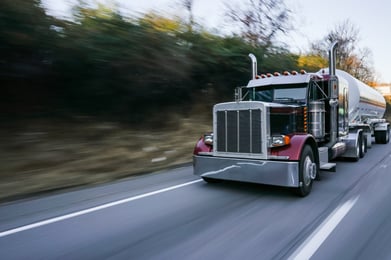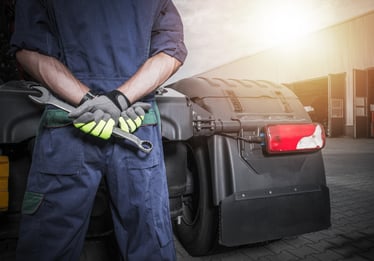How Heavy Duty Power Steering Is Going Electronic
 Heavy duty vehicles (just like any other type of vehicle) are starting to look a lot different today. Maybe you can't see the differences on the outside, but under the hood, change is happening. Perhaps the biggest change in vehicle technology in the past two decades is the transition from hydraulic to electronic power steering, and those advancements are finally making their way into the heavy duty segment.
Heavy duty vehicles (just like any other type of vehicle) are starting to look a lot different today. Maybe you can't see the differences on the outside, but under the hood, change is happening. Perhaps the biggest change in vehicle technology in the past two decades is the transition from hydraulic to electronic power steering, and those advancements are finally making their way into the heavy duty segment.
Most new cars produced in the past few years come with standard electronic power steering, but how is this shift from hydraulic to electronic steering affecting the heavy duty market? Today, we'll discuss the advantages of manufacturers making the switch and how fleets are accepting the change to EPS.
Why the Transition from Hydraulic to Electronic Power Steering?
 For many years, hydraulic power steering was the standard system for steering assist for most vehicles on the road. With hydraulic steering, fluid moving through a belt-driven pump made steering easier and more comfortable for drivers -- especially in high-mileage heavy duty vehicles that also benefitted from the fuel efficiency and assist features. For decades, hydraulic steering was a great choice for regulating the amount of assist needed to accommodate steering effort at different speeds. However, not that long ago, electronic power steering emerged on the market and changed everything.
For many years, hydraulic power steering was the standard system for steering assist for most vehicles on the road. With hydraulic steering, fluid moving through a belt-driven pump made steering easier and more comfortable for drivers -- especially in high-mileage heavy duty vehicles that also benefitted from the fuel efficiency and assist features. For decades, hydraulic steering was a great choice for regulating the amount of assist needed to accommodate steering effort at different speeds. However, not that long ago, electronic power steering emerged on the market and changed everything.
Since electronic power steering operates using sensors that transmit signals to a control module, and as the need for physical pumps, belts, and fluid was eliminated, so were many of the maintenance challenges associated with hydraulic steering systems. Issues with things like fluid pressure and quality, leakage from pumps and hoses, and wear and tear on mechanical parts that require constant service and repairs. When it comes to heavy duty vehicles and the high pressure and wear their parts go through on a daily basis, hydraulic steering comes with a lot of moving parts that require attention to maintain and fix.
While electronic power steering comes with its own unique challenges in terms of calibration and programming, it makes a lot of sense to bring this technology to a segment that is constantly replacing worn out parts. However, there is still hesitation from fleet managers to adopt electronic steering.
EPS in the Heavy Duty Market
As EPS has become the standard in newly produced passenger and light-duty vehicles, more and more heavy duty EPS systems and kits, as well as hybrid solutions, have entered the market. Perhaps the most notable example is that ZF recently announced it's ReAx steering system would be available for heavy duty trucks after showing promise in the coach and bus segment. The ReAx system has been upgraded as EPS and assist technology advanced, and the sensor system can be attached to steering gears to boost hydraulic steering performance in a variety of ways.
However, considering the relative age of many heavy duty vehicles on the road, as well as the higher up-front costs to upgrade trucks or purchase new ones, the fleet industry has been somewhat slow to adopt the emerging electronic steering technology, despite its features and benefits. But as manufacturers continue to move forward with EPS development in the heavy duty sphere, motivated by the success of EPS in the lighter-duty market, it's generally expected for the shift from hydraulic to electronic steering to impact the heavy duty market in the coming years. So as your shop prepares to service more and more EPS systems, it's important to begin your preparations for the heavy duty variety sooner rather than later.


